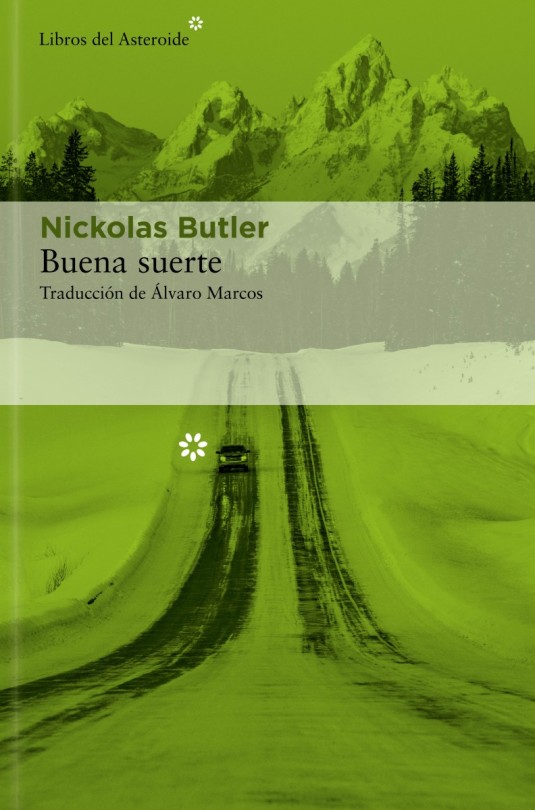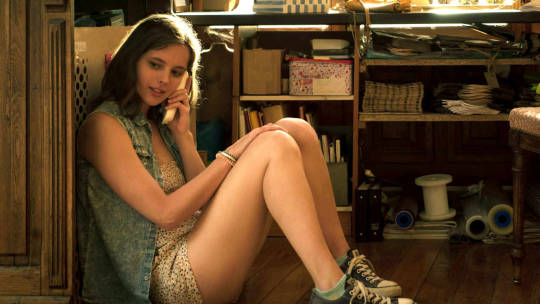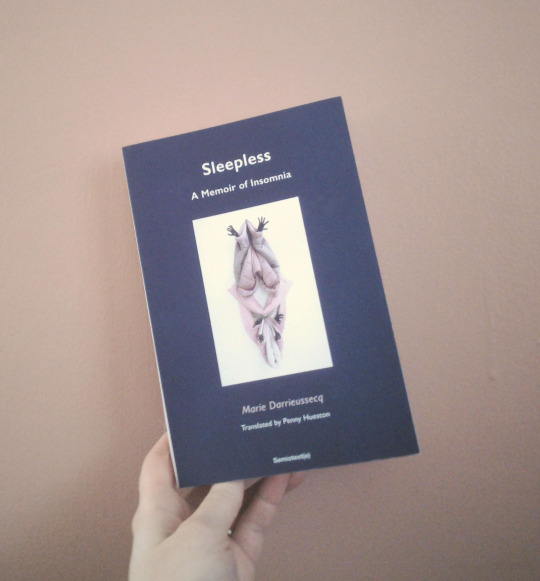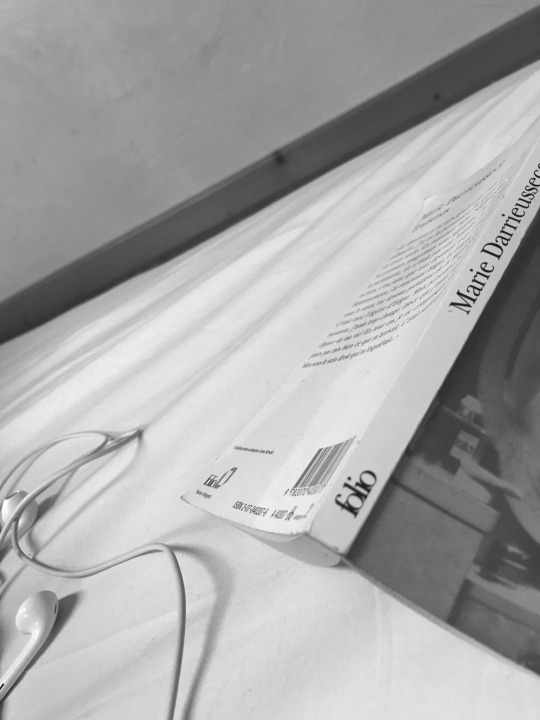#Marie Darrieussecq
Text
À rester dans sa chambre, elle se désintègre. Sans yeux qui la regardent, sans témoin qu’elle est là, ses atomes la quittent. Poussières qui flottent aux vitres, un nuage ténu, un voile percé par les rayons.
Marie Darrieussecq, Clèves
61 notes
·
View notes
Text
Books Read in October:
1). Vladimir (Julia May Jonas)
2). The Glutton (A.K. Blakemore)
3). The Late Americans (Brandon Taylor)
4). By Grand Central Station I Sat Down and Wept (Elizabeth Smart)
5). The Pleasure of Reading (ed. Antonia Fraser)
6). I Capture the Castle (Dodie Smith)
7). The Pleasure of Eliza Lynch (Anne Enright)
8). Let Us Descend (Jesmyn Ward)
9). Eichmann in Jerusalem: The Banality of Evil (Hannah Arendt)
10). Things Are Against Us (Lucy Ellmann)
11). Sleepless (Marie Darrieussecq, trans. Penny Hueston)
12). My Husband (Maud Ventura, trans. Emma Ramadam)
13). So to Speak (Terrance Hayes)
14). Artful (Ali Smith)
15). Time Shelter (Georgi Gospodinov, trans. Angela Rodel)
16). Dandelions (Thea Lenarduzzi)
17). The Sign of the Cross: Travels in Catholic Europe (Colm Tóibín)
#my literary life#booklr#book list#adult booklr#julia may jonas#a.k. blakemore#brandon taylor#elizabeth smart#antonia fraser#dodie smith#anne enright#jesym ward#hannah arendt#lucy ellmann#marie darrieussecq#maud ventura#terrance hayes#ali smith#georgi gospodinov#thea lenarduzzi#colm toíbín
6 notes
·
View notes
Text
The ascendancy of electricity accelerated the streamlining of cities and metamorphosed the relationship between human beings and the night. Once Electra is domesticated, citizens can, and must, work, regardless of the position of the sun in the sky.
Jonathan Crary, in his book 24/7: Late Capitalism and the Ends of Sleep, deciphers how capitalism has succeeded in commodifying all our basic needs: light, heat, water, food, housing, sex, and even friendship. But it still has trouble expropriating sleep. It therefore permanently illuminates the night so that the conditions under which frenetic production takes place are a form of generalized insomnia. The watchword from now on: open twenty-four hours.
—Marie Darrieussecq, from "A World of Networks and Vines," transl. Penny Hueston in Granta
2 notes
·
View notes
Text
Lecturas de junio. Tercera semana
Lecturas de junio. Tercera semana
Buena suerte / Nickolas Butler. Libros del Asteroide, 2022
Bart, Teddy y Cole, amigos desde la infancia, trabajan juntos en su modesta empresa constructora en Jackson, un pueblo de montaña en Wyoming. Un día reciben el inesperado encargo de construir una sofisticada casa en medio de la naturaleza, si consiguen terminarla antes de Navidad recibirán una exorbitante recompensa. Enseguida se dan…

View On WordPress
#Amistad#capitalismo#Ediciones Invisibles#el plazo#el sueño#Eva Baltasar#la carta#la casa#machismo#Marie Darrieussecq#maternidad#Navidad#Nickolas Butler#William Somerset Maugham
0 notes
Photo

Clèves, 2021, Rodolphe Tissot, avec Louisiane Gouverneur
Crédit photo : Claire Nicol
1 note
·
View note
Text
What I read in 2023, pretty good going 👍 (apologies for long non sims post)
1. Middlemarch by George Eliot
2. Capitalism in the Twenty-First Century: Through the Prism of Value by Guglielmo Carchedi and Michael Roberts
3. The Temple House Vanishing by Rachel Donohue
4. The Book of Tokyo: A City in Short Fiction edited by Michael Emmerich, Jim Hinks & Masashi Matsuie
5. Clipped Coins, Abused Words, and Civil Government: John Locke's Philosophy of Money by George Caffentzis
6. Crashed: How a Decade of Financial Crises Changed the World by Adam Tooze
7. Mexican Gothic by Silvia Moreno-Garcia
8. Civilizing Money: Hume, his Monetary Project and the Scottish Enlightenment by George Caffentzis
9. An Untouched House by Willem Frederik Hermans
10. Life Ceremony by Sayaka Murata
11. Act of Oblivion by Robert Harris
12. Fireheart Tiger by Aliette de Bodard
13. Exiles from European Revolutions: Refugees in Mid-Victorian England edited by Sabina Freitag
14. The Apprenticeship of Big Toe P by Rieko Matsuura
15. A Civil War: A History of the Italian Resistance by Claudio Pavone
16. Mrs Caliban by Rachel Ingalls
17. Dracula by Bram Stoker
18. The Silent Dead by Tetsuya Honda
19. Lady Susan by Jane Austen
20. Adam Smith in Beijing: Lineages of the Twenty-First Century by Giovanni Arrighi
21. This Should be Written in the Present Tense by Helle Helle
22. The Citadel of Weeping Pearls by Aliette de Bodard
23. The Invention of Art: A Cultural History by Larry Shiner
24. Sister, Maiden, Monster by Lucy A. Snyder
25. The Mismeasure of Man by Stephen Jay Gould
26. Ninety-Three by Victor Hugo
27. Carol by Patricia Highsmith
28. Victorian Women Writers and the Woman Question edited by Nicola Diane Thompson
29. Some Recent Attacks: Essays Cultural & Political by James Kelman
30. Mem by Bethany C. Morrow
31. Russia Under Yeltsin and Putin by Boris Kagarlitsky
32. Station Eleven by Emily St. John Mandel
33. The History of the British Film 1918-1929 by Rachael Low
34. The Law of Accumulation and Breakdown of the Capitalist System by Henryk Grossman
35. Mayhem & Death by Helen McClory
36. White by Marie Darrieussecq
37. Dream Houses by Genevieve Valentine
38. The Vanishers' Palace by Aliette de Bodard
39. Maigret Takes a Room by Georges Simenon
40. The Lodger, That Summer by Levi Huxton
41. Mistakes Were Made by Meryl Wilsner
42. Grundrisse by Karl Marx
43. A Marvellous Light by Freya Marske
44. Our Wives Under the Sea by Julia Armfield
31 notes
·
View notes
Text
Whenever she sees them hesitate, Elizabeth Gilbert encourages her interlocutors to ask about her non-motherhood; it's important to her and she likes to discuss it. In contrast, Rebecca Solnit is infuriated at being asked about it so often:
“Part of my own endeavor as a writer has been to find ways to value what is elusive and overlooked, to describe nuances and shades of meaning, to celebrate public life and solitary life, and —in John Berger's phrase—to find ‘another way of telling,’ which is part of why getting clobbered by the same old ways of telling is disheartening.”
She wrote her article on the subject in the wake of a lecture she gave about Virginia Woolf. To her great surprise, the audience discussion rapidly turned to whether Woolf, celebrated author of Mrs. Dalloway and To the Lighthouse, ought to have had children. In 2016, French writer Marie Darrieussecq had the same unpleasant surprise. Invited to talk about her new translation of Woolf's A Room of One's Own on the France Culture radio channel, she was asked the same question. She began by patiently responding that Woolf's sufferings were certainly deep-rooted, but that nothing suggested her lack of children had played a part in them. When the interviewer pressed her on the point, Darrieussec lost her temper: "Really this is beside the point! Excuse me—l'll be polite about it—but really this is too much! Do people ask such questions of a male writer without children? I couldn't care less! For me, this is really to reduce Woolf to the sum of her female body, and this is not at all what she's doing in this essay." . . . These clashes are further confirmation of Pam Grossman's view in the introduction to her celebration of "literary witches," among whom Woolf takes her due place, that "women who create things other than children are still considered dangerous by many." And best beware: even being Virginia Woolf cannot exonerate you for not being a mother. Any readers who are considering not reproducing, or who may have neglected to get on with it, be warned: it's no good locking yourself away and writing masterpieces in a sad attempt at deflecting attention from this grave oversight, which has of course made you very unhappy, even though you don't know it. If you must write masterpieces, do it for other reasons—for the pleasure; otherwise, rather devote the leisure moments of your scandalous existence to reading novels in peace under a tree, or to whatever else you'd like to do.
-Mona Chollet, In Defense of Witches: The Legacy of the Witch Hunts and Why Women are Still on Trial
#mona chollet#biological determinism#motherhood#women writers#cultural expectations#sex roles#non-motherhood
9 notes
·
View notes
Text
Un regard sur la mer et elle voudrait être la mer Un regard sur les vagues et elle voudrait être les vagues. Elle voudrait être le vide, elle voudrait être l'ailleurs, elle voudrait être la chanson qu'il a dans la t^te et elle voudrait qu'il la chante, elle, qu'il dérive, oui, mais vers elle ; elle voudrait être cette pensée évasive.
Marie Darrieussecq
30 notes
·
View notes
Text
Réessayer. Les lèvres, les mains. Fermer les yeux. Est-ce que ça s’est usé ? Est-ce que le temps s’use, à passer, et les souvenirs, comme des disques, est-ce que le temps laisse des poussières qui entrent dans les yeux ?
Marie Darrieussecq, Clèves
#Marie Darrieussecq#Clèves#livre#book#citation#citation française#littérature#littérature française#blog#blogger#bookblogger
47 notes
·
View notes
Text
Marie Darrieussecq : "Les livres nous attendent, ils sont là, ils dureront plus longtemps que nous"
2 notes
·
View notes
Text
The provision of safe sleeping arrangements for everyone is a social indicator of the birth of the state.
Historians such as A. Roger Ekirch describe how, little by little, public lighting and night patrols were organized first in cities, and then throughout the rest of the country. Street lighting on main roads became a political initiative in the Middle Ages. It was a matter of guaranteeing that everyone could sleep safely, but also of ensuring that people slept, or at least stayed home. Before the industrial revolution, night work was illegal in the majority of businesses. Every vagrant was suspicious, every female out walking was a witch or a prostitute, while the patrolling officers themselves were required to keep their eyes open. In a sense, not-sleeping was the monopoly of the state. Anyone who didn’t sleep was feared or frowned upon.
—Marie Darrieussecq, from "A World of Networks and Vines," transl. Penny Hueston in Granta
0 notes
Text
Stefan Zweig, two weeks after the start of World War Two: ‘From now on, an endless network covers the world, all day and all night.’ No one is alone in their bed anymore. Each individual knows that ‘thanks to our new methods of spreading news as it happens, we have been constantly drawn into the events of our time . . . Incidents thousands of miles away came vividly before our eyes. There was no shelter, no safety from constant awareness and involvement.’
The networks crisscross our sleep, the rhizomes grow in our brains. This new environment has spread steadily, speeding up. There is no escape from the news. We are a community filled with anxiety. We are as global as bubbles. And we also like this instantaneous medium that is now so familiar. We order American-made objects that arrive in our European letterboxes, sent from addresses in China. We see them on our screens and they materialize in our apartments. The annihilation of space by time: Marx predicted it, Amazon enabled it. And in the mid-2000s we saw people living in Brisbane, Mumbai, Lagos, or Buenos Aires, pixelating all at the same time on Skype video conferences. Our still-faltering communication systems, with flickering images and intermittent audio, gave those years their old-world tone. During lockdown, the use of these apps multiplied exponentially – FaceTime, Zoom, Teams, Jami, Discord, and others. Discordia, daughter of the night, in Homer’s words....
Whether we’re locked down or not, it’s clear that, even in our bedrooms, space is annihilated by time. Do you have your own room? All sorts of devices surround you. Electromagnetic waves circulate. Diodes keep their eyes peeled. No matter how often you put your device on ‘airplane mode,’ on ‘ghost mode,’ on ‘do not disturb,’ the world – at your fingertips, just like in the ads – demands that you stay present. In the depths of insomnia, you go online again. Your pupils contract in the blue light of the screen. An artificial dawn. You read your text messages and comments, you look at and listen to images, you discuss, perhaps you add a comment and you like, you look at things that are your business and that others are perhaps making it their business to look at too.
"A World of Networks and Vines", Marie Darrieussecq (trans. Penny Hueston)
6 notes
·
View notes
Photo

¡Feliz Día de las escritoras! Almudena Grandes, Rosa Montero, Irene Vallejo, Leila Guerriero, María Moliner, Cristina Peri Rossi, Emília Pardo Bazán, Matilda de Kerengal, Marie Darrieussecq, Teresa de Jesús #diadelasescritoras #fernandovicente https://www.instagram.com/p/Cj0YtiVoiz2/?igshid=NGJjMDIxMWI=
3 notes
·
View notes
Text

Sleepless: A Memoir of Insomnia by Marie Darrieussecq, translated by Penny Hueston
0 notes
Text
JANVIER 2024
Monique Lange, Les Cabines de bain.
Marie Darrieussecq, Fabriquer une femme.
Ophélie Pesenti, Et surtout n'oubliez pas de sourire.
Marie Ndiaye, La Vengeance m'appartient.
Marie Ndiaye, La Cheffe, roman d'une cuisinière.
Michel Houellebecq, Anéantir.
0 notes
